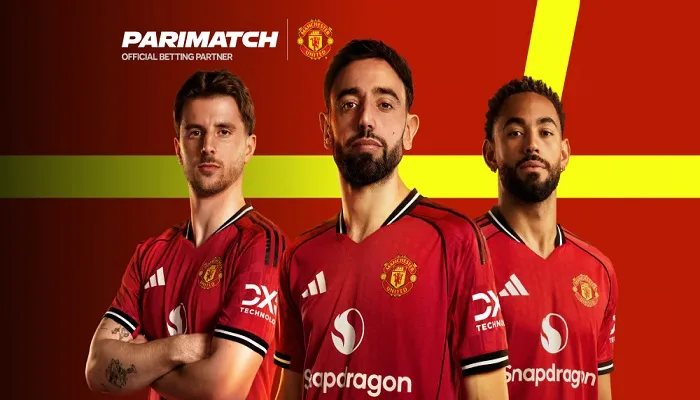The Power of Sports in Modern Society – Beyond the Game
Introduction: More Than Just a Game
Sports are often seen as simple competitions, but their influence stretches far beyond the pitch, court, or stadium. They shape culture, inspire communities, and even drive economic growth. In countries across Asia, football, badminton, and basketball are more than sports – they are shared experiences that bring people together.
Today, sport is also shaped by globalization, technology, and new fan-engagement practices. For some fans, regulated betting products form part of that engagement, offering statistical insights and real-time markets that complement match-day coverage. Licensed operators such as Parimatch provide companion features and data overlays that some viewers use to deepen their experience; where these services are available, they should operate under clear regulation, enforce strict age checks, and include responsible-play tools so that engagement remains safe and community-focused.
Sports as a Cultural Force
Unity Across Borders
Sports have the unique ability to unite people across different backgrounds. Whether it’s Indonesians celebrating a badminton victory or millions worldwide watching the FIFA World Cup, sports create a sense of shared identity.
Tradition and Rituals
Every culture has its own sporting traditions – from sepak takraw in Southeast Asia to cricket in South Asia. These traditions connect generations, reminding us that sports are deeply rooted in history.
Health and Personal Development
Promoting Active Lifestyles
Sports encourage physical activity, which is crucial for fighting modern health challenges like obesity and stress. Communities with strong sporting cultures often see higher levels of fitness and well-being.
Life Lessons Through Sport
Beyond physical health, sports teach discipline, teamwork, and resilience. Young athletes often carry these values into their education, careers, and personal lives.
The Economic Side of Sports
Jobs and Opportunities
Sports create employment – from professional athletes to coaches, stadium staff, and media workers. The sports industry supports millions of livelihoods globally.
Tourism and Local Economies
Major events attract visitors who spend on hotels, food, and transport. Cities hosting international tournaments often see a surge in economic activity.
Sports Betting as an Economic Factor
Sports betting has grown into a global industry. For governments and organizations, it generates revenue through regulation and taxation. For fans, it represents a form of entertainment tied to predictions and analysis. However, the risks of addiction mean that responsible betting must always be emphasized.
Technology and the Transformation of Sports
Analytics and Performance
Data analytics now drives player training and match strategies. Coaches monitor everything from running distance to recovery times, making sports more scientific than ever.
Broadcasting and Streaming
Fans can watch live matches from anywhere in the world. Streaming platforms allow Indonesian fans to follow European football or NBA basketball in real time.
Betting and Real-Time Data
Sports betting platforms also rely on this data. Pre-match odds consider form and injuries, while live betting shifts dynamically with momentum changes. For fans who choose to bet, this data-driven approach adds another lens to enjoy the game.
The Emotional Impact of Sports
Drama and Anticipation
Like a gripping movie, sports offer suspense and unpredictability. The joy of a last-minute goal or a surprising comeback is unmatched.
Community and Identity
Fans form clubs, wear team jerseys, and celebrate victories together. Supporting a team becomes part of personal and national identity.
Betting and Emotional Engagement
Some fans see betting as a way to enhance this emotional journey – placing small wagers to feel even more invested in outcomes. Still, the true spirit of sports lies in the shared excitement, not the stakes.
Challenges in Modern Sports
Commercialization
The growing financial influence of sponsors, media rights, and betting partners sometimes overshadows the purity of the game. Fans often debate whether sports remain about passion or profit.
Integrity and Fair Play
With money and betting involved, ensuring fairness is crucial. Leagues and organizations are working hard to maintain trust by combating match-fixing and promoting transparency.
Balancing Tradition and Innovation
Sports must adapt to modern demands without losing their essence. While technology improves performance and engagement, tradition keeps sports rooted in community values.
The Future of Sports in Society
- Virtual Reality: Fans may soon experience games as if they’re sitting inside stadiums, no matter where they live.
- Artificial Intelligence: AI will refine predictions for coaches, fans, and betting platforms alike.
- Responsible Growth: As betting and commercialization grow, responsible regulation will be vital to protect fans while allowing industries to flourish.
- Global Integration: Sports will continue to be a global language – uniting fans from Jakarta to New York, from Tokyo to London.
Conclusion: The Lasting Power of Sports
Sports remain one of humanity’s most powerful cultural forces. They inspire, unite, and entertain. They create jobs, build communities, and teach values that go beyond the field.
Sports betting may be part of the modern fan experience, but it is not the heart of the game. The true essence of sports is in the unpredictability, the passion of supporters, and the unforgettable moments that shape our memories.
From local playgrounds to international arenas, sports will always be more than just a game – they are a reflection of who we are as a global community.
FAQs About Sports in Modern Society
1. Why are sports so important to society?
They promote health, unity, and culture, while also generating economic and social impact.
2. How has technology changed sports?
From streaming platforms to data analytics, technology has transformed both how games are played and how fans experience them.
3. What role does sports betting play today?
It offers a neutral form of engagement for some fans, adding statistical insight but never replacing the core unpredictability of sports.
4. Can betting influence match outcomes?
Legitimate sports organizations enforce strict rules to protect integrity. Betting odds reflect probabilities, not guarantees.
5. What challenges does modern sport face?
Over-commercialization, player burnout, and fair play are ongoing concerns.
6. What’s the future of sports?
Expect more integration of technology, global fan engagement, and balanced regulation of industries like betting.







